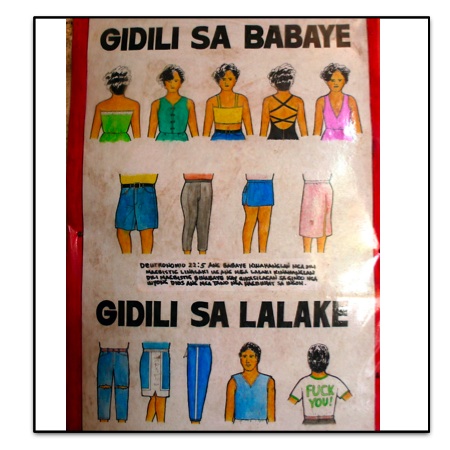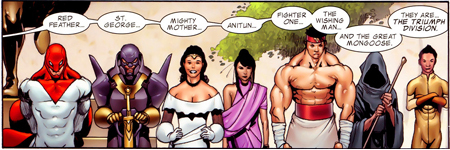“How can an agricultural country not have enough rice?”-Mikonawa, Eater of Moons
We don’t feel it yet, but there is a shortage of rice in this country. The government has resorted to rationing inexpensive NFA rice, and lines form before dawn as the poor and hungry prepare to stand for hours for the chance to buy a few kilograms of rice. In case you doubt the seriousness of the situation, consider that people are now actually falling in line, something that we are not genetically predisposed to do.
It sounds almost absurd, this shortage of rice. Like something from Gabriel Garcia Marquez or the Bible or some other work of magical realism. After all, shouldn’t the Philippines, being an agricultural nation, not have enough food for its people?
But then again, we’re not really an agricultural nation anymore. Not since the Thomasites came over on the good ship USS Thomas armed with their education and civilization and toothpaste, and perhaps not even before that. We’ve all learned to better ourselves through education to escape the drudgery of agriculture. We’ve become doctors and lawyers and such. Nurses and physical therapists and dancers and caregivers and armchair intellectuals.
The Banaue rice terraces are falling into disrepair because the Ifugao youth are not interested in farming and preserving the old ways of life. Terraces or no, this is a phenomenon that has been happening in rural areas all over the country for decades. Probinsiyanos flock to the cities to get an education and a piece of the action, often ending up in slums, destitute and despondent. It’s like England during the Industrial Revolution only with a lot less industry.
The government started by denying that there was a rice shortage, then upped the importation of rice from other rice-producing nations while appealing to dealers not to hoard rice or manipulate prices. Now, a few weeks later, they’ve resorted to rationing, supplies often running out before those in line get their alloted two to four kilograms of rice. With the Arroyo administration’s penchant for knee-jerk solutions and its callous disregard for human rights, the next step is inevitable: the Pol Pot Solution. Food self-sufficiency at all costs.
Through an all-powerful but legally-questionable Executive Order, We’ll all be rounded up to take part in this new Green Revolution either as a farmer or as fertilizer. We’ll be brought to what idle tracts of arable land have not been planted with export crops like sugar and jatropha, and forced to plant potatoes and rice (though not together) while reciting Joyce Kilmer’s Trees from start of day to set of sun. Peasants who refuse or recite their own favorite poetry will be shot on the spot.
Any form of independent or critical thought will be severely punished, generally by being shot on the spot. Sarcasm, dry humor, non sequiturs and silliness will be outlawed. As new peasants, we will only be allowed to think about crops, the weather, harvest season, and the inherent goodness of our infallible and infinitely-just government and the President for which it stands.
It will be difficult, at first, but eventually, the scarcity of food crops will be solved. Of course, we will then have the problem of having a scarcity of people, but with the number of Korean tourists arriving daily, who’ll notice, really?




